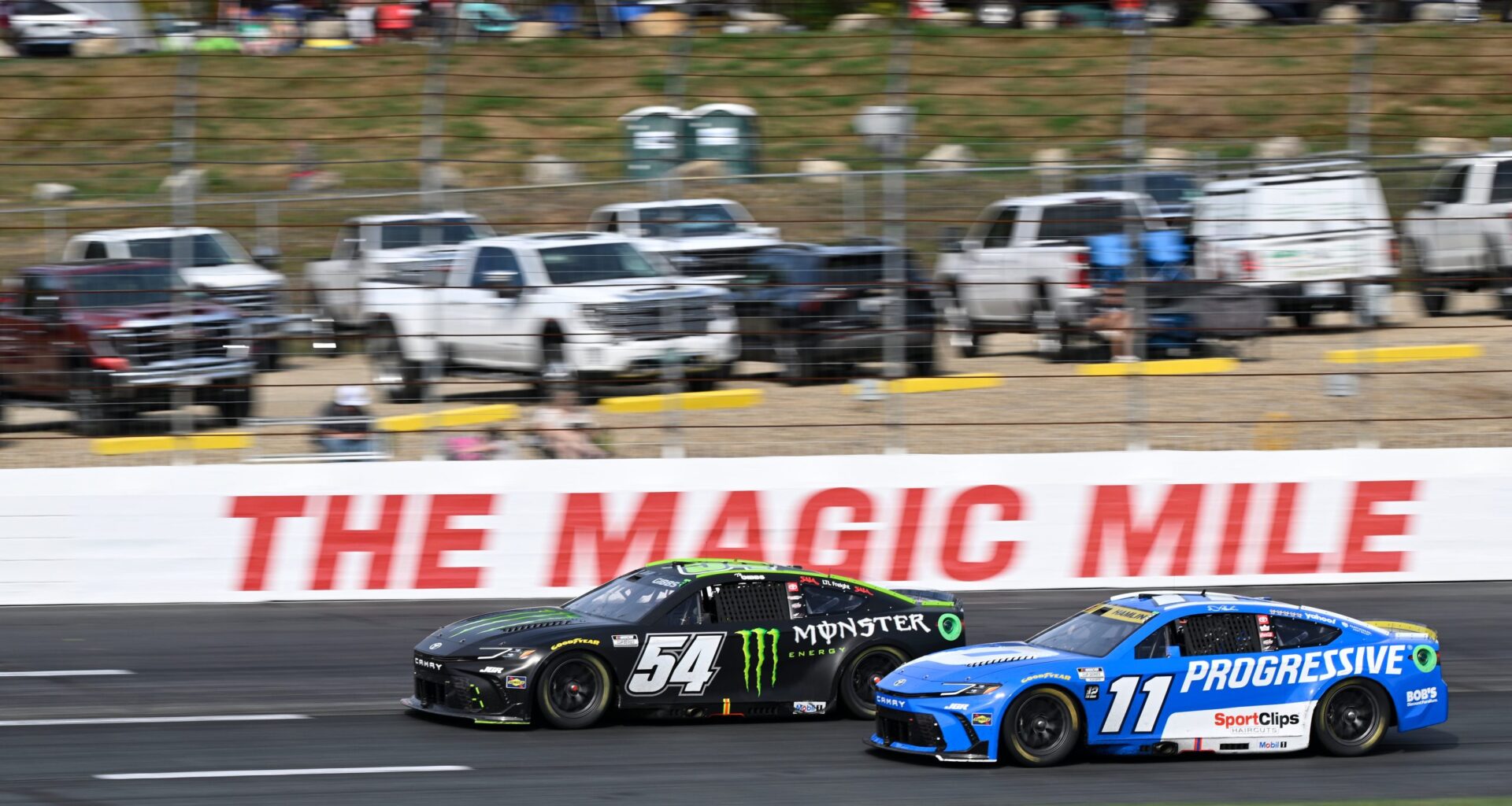The NASCAR playoffs are underway, but once again the racing series is being dominated by the NFL. And its overseas competition may be the biggest beneficiary.
Last week saw the NASCAR Cup series return to New Hampshire and the television numbers were downright diabolical. The Sunday race drew just a .70 rating and 1.29 million viewers according to Sports Business Journal’s Adam Stern.
It continues a horrific early fall for NASCAR, who have seen ratings plummet throughout the season. The viewership numbers from this past weekend were down almost 28% from the corresponding playoff race one year ago.
The Cup series is currently 13% down in ratings so far in 2025 after seeing a slight bump in 2024. The .70 rating and 1.29 million viewers for the New Hampshire race also appear to be the lowest numbers for a regularly scheduled Cup series race that was not delayed due to inclement weather in recent memory.
.@USANetwork got a 0.70 rating and 1.29 million viewers for Sunday’s NASCAR Cup Series race @NHMS, down from a 1.0 rating and 1.88 million viewers for last year’s race at the same track and from a 0.96 rating and 1.79 million for last year’s fourth playoff race at Kansas. pic.twitter.com/amruIzIg0Z
— Adam Stern (@A_S12) September 24, 2025
While NASCAR ratings are in a tailspin, it’s a different story for Formula 1 on ESPN. ESPN drew 1.1 million viewers for the Azerbaijan Grand Prix in Baku, which was a record for the race. In fact, ESPN has seen 16 of 17 races see increases in viewership in 2025 including 11 Grand Prix races that have set new high-water viewership marks.
Formula 1 races on ESPN continue on pace for season viewership record after #F1 #AzerbaijanGP
🏁 1.4M avg. viewers this season
🏁 16 of 17 races up YoY
🏁 11 new event records
Next: #SingaporeGP | Sunday, Oct. 5 | 7:55a ET | ESPN pic.twitter.com/su6QDG7n78
— ESPN PR (@ESPNPR) September 23, 2025
The difference of just 190,000 viewers is the closest difference we could find on record between NASCAR and F1 races that happened on the same day. Earlier this year, the Canadian GP had an afternoon timeslot on ABC and went directly against the NASCAR race in Mexico City on Prime Video. But even with that significant reach advantage, NASCAR still came out on top (2.097 million vs 1.9 million). Seeing F1 come this close to matching NASCAR viewership on the same weekend should send shockwaves through the racing world.
There are a couple caveats here to consider. First, F1’s early morning audience for the race in Baku did not face any competition from the NFL while NASCAR’s New Hampshire race happened in the middle of Sunday action. Second, the NASCAR race also happened at the same time as the Charlie Kirk memorial service, which drew an additional 5 million viewers.
NASCAR has struggled to find a foothold with its playoffs during football season. And the battle is only getting more and more difficult. It’s one of the reasons why the PGA Tour shifted its schedule to end their FedEx Cup playoffs before the football season gets underway. However, with NASCAR’s 36 week schedule, it’s not going to escape NFL competition unless they want to move races to Saturdays or weekdays.
America’s top racing series is facing pressure from all sides at the moment. The playoff format itself has fallen under severe criticism and a groundswell of grass roots support is arguing for a move back to a season-long championship. The current race car has been panned for creating a lack of exciting racing. And the sport’s new media deal, with more races on streaming and cable than ever before, may have created a pathway for audiences to slip away more easily.
Add it all up and NASCAR is finding itself at a serious crossroads, with no idea where to turn next to get itself back on track.

